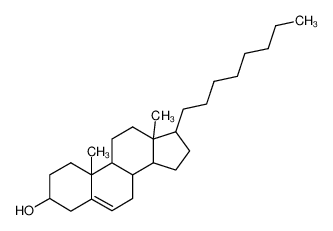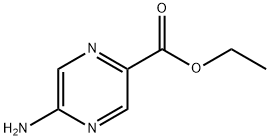Hello, I’d like to ask about high triglycerides with normal cholesterol. First, what usually causes triglycerides to be high while cholesterol stays normal (like, is it diet, metabolism, or something else)? Also, how do lifestyle factors (like exercise, stress, or alcohol intake) play a role in high triglycerides but normal cholesterol? Next, could genetics be behind high triglycerides with normal cholesterol (like, are there specific inherited conditions or gene mutations)? And finally, are there certain medications that might raise triglycerides without affecting cholesterol levels (like, birth control, steroids, or other drugs)? Thanks so much for breaking it down!
What Causes High Triglycerides But Normal Cholesterol? Lifestyle, Genetics, and Medications
Related Encyclopedia
Related Products More >
-
- 57-88-5
- Request For Quotation
- 25kg/Cardboard Drum
-
- 57-88-5
- Request For Quotation
- 1kg,25kg or according to customer's detail requirement.
-
- 57-88-5
- Request For Quotation
- 1kg Consult customer service
-
- 57-88-5
- Request For Quotation
- 25kg/package
-
- 57-88-5
- Request For Quotation
- 1kg/Aluminum Foil Bag, 5kg/Carton, 10kg/Carton, 25kg/Paper Drum, 50kg/Paper Drum
-
- 57-88-5
- Request For Quotation
- 25kg/drum
-
- 57-88-5
- Request For Quotation
- 25kg/drum
-
- 57-88-5
- Request For Quotation
- 1kg/bag;25kg/Cardboard Drum




 沪ICP备2021018848号-5
沪ICP备2021018848号-5

Lifestyle Factors Impacting TG (Not Cholesterol)
High Sugar/Refined Carb Intake:
Excess glucose converts to triglycerides in the liver via de novo lipogenesis, raising TG while cholesterol remains stable.
Example: Drinking 2 sodas daily can increase TG by 50+ mg/dL.
Alcohol Consumption:
Boosts hepatic TG production by 30–50% but minimally affects LDL/HDL.
Sedentary Behavior:
Lack of exercise reduces lipoprotein lipase activity, impairing TG clearance.
Overnutrition Without Obesity:
Lean individuals with high-carb diets often show isolated high TG.
Key Insight: TG spikes faster than cholesterol to dietary changes (within days vs. weeks).
Genetic Causes of Isolated High Triglycerides
Familial Hypertriglyceridemia (FHTG):
Autosomal dominant mutation in APOA5 or LPL genes, causing TG 200–500 mg/dL with normal LDL.
Lipoprotein Lipase Deficiency:
Rare recessive disorder (TG >1,000 mg/dL) due to impaired TG breakdown.
APOC3 Variants:
Overexpression inhibits TG clearance, common in 5% of Europeans.
Testing: Genetic panels for LPL, APOA5, APOC3 confirm diagnosis.
Medications That Raise TG Selectively
Drug Class Examples TG Increase Mechanism
Estrogens Oral contraceptives +20–40% Stimulates VLDL production
Retinoids Isotretinoin (Accutane) +30–60% Activates lipogenesis
Beta-Blockers Propranolol +15–30% Reduces lipoprotein lipase activity
Antiretrovirals Lopinavir/ritonavir +100–300% Blocks lipid oxidation
Note: Statins lower LDL but may paradoxically increase TG in some patients.
Lifestyle factors play a significant role. Lack of physical activity reduces the body’s ability to break down and use triglycerides, leading to their accumulation. Smoking and a diet high in trans fats also contribute to elevated triglyceride levels.
Genetic factors can also be at play. Some people inherit genetic mutations that affect how their bodies process fats, causing triglyceride levels to rise while cholesterol remains normal.
Certain medications can increase triglyceride levels. For example, corticosteroids used to treat inflammation, some beta - blockers for high blood pressure, and antiretroviral drugs for HIV can disrupt lipid metabolism, resulting in higher triglycerides without significantly affecting cholesterol.